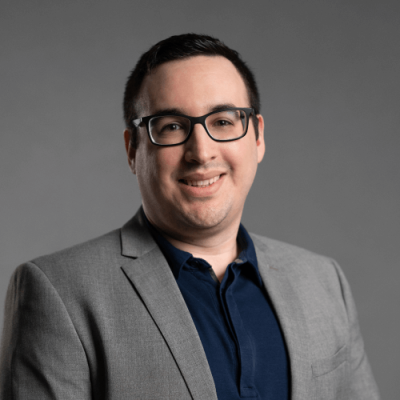Asbestos Legal Claims: A Q&A With Meirowitz and Wasserberg
Legislation & LitigationWritten by Sean Marchese | Edited by Walter Pacheco

Mesothelioma lawyers at national firms know the ins and outs of dealing with asbestos claims. Samuel Meirowitz and Daniel Wasserberg have helped recover more than $300 million in compensation for mesothelioma patients and their families. Their firm ranks among the top 10 for asbestos and mesothelioma trial lawyers.
The lawyers at Meirowitz & Wasserberg have decades of experience helping families recover expenses for medical bills, lost wages, travel fees and more. In an exclusive interview with The Mesothelioma Center at Asbestos.com, Sam and Dan agreed to answer the most pressing questions about what to expect when working with lawyers to file an asbestos claim.
Importance of Seeking Compensation
Compensation serves as a way for companies to acknowledge and take responsibility for the harm caused by asbestos exposure. Besides covering costs related to a mesothelioma diagnosis, pursuing a legal claim can provide a sense of justice and closure.
Q: Why is it crucial for patients and families to file a mesothelioma lawsuit?
Samuel Meirowitz: Companies can’t pay back your health, they can’t undo what they’ve done, and they can’t go to jail for their sins. The only thing that they can do is pay compensation. That’s the only form of making somebody feel whole when so much has been taken from them.
For the families affected by asbestos disease and mesothelioma, this is the company’s way of saying, “I’m sorry.” Recognizing and taking responsibility for what they’ve done. And so nobody should feel uncomfortable or immoral about getting what they’re entitled to.
Daniel Wasserberg: We have to prove that the defendant(s) knew or should have known about the hazards of asbestos, that they should have put a warning on the product, and that they failed to put a warning on the product. If they knew it was dangerous, and they never put a warning on it, then they failed to warn and may be found liable.
Q: When should people start looking at legal options?
Samuel Meirowitz: People should start looking at legal options immediately after diagnosis. Mainly because we can work side-by-side with medical treatment. It doesn’t need to be, “Let’s wait until medical treatment is over to start legal.”
It’s particularly important to get in touch with lawyers immediately because, sometimes, the early stages before medical treatment get intense. This can be the time when we can get the most information from the client and preserve their rights going forward so that when the medical treatment becomes more aggressive, if it becomes more aggressive, they can focus on that and not have to focus on telling their story in a legal setting.
Q: Are there any examples of memorable cases you’ve represented?
Samuel Meirowitz: We had one special instance where a client told us in the first meeting, “Are you ready to try the case?” We thought that was unlikely despite the client’s feelings about it because most cases settle, but the client felt very strongly about having his day in court and wanting a jury to decide on what should be done about the loss of his wife.
This was a take-home exposure case. We ended up trying that case to a verdict, just as he had predicted in the first meeting with him. We obtained a phenomenal result with a $32 million jury verdict in our client’s favor.
Filing an Asbestos Claim
Qualified mesothelioma lawyers will guide you through the best way to pursue a legal claim. They’ll know the best jurisdiction to file your claim and which type of claim to file. Whether you file a personal injury claim or an asbestos trust fund claim, mesothelioma compensation can cover treatment expenses, lost wages and much more.
Q: What are the first steps when working with a mesothelioma case?
Samuel Meirowitz: There’s a lot of complexity to mesothelioma cases, mainly because the cases arise all over the country. Sometimes, people will be living in one place now, but their exposure history spans multiple states that they lived in when they were working prior to where they are currently residing. So, you have to do a jurisdictional analysis to figure out where a case is best filed.
We look at their work history. We look at what products contain asbestos that they worked with throughout their lifetime. We look at other people they would’ve worked around if they didn’t handle asbestos products that could have exposed them to asbestos. We look at the environment in which they grew up.
Daniel Wasserberg: It will depend on what jurisdiction we’re going to use for the case. We go out and meet with a client, sit down with them, and talk to them about all the different ways they were potentially exposed to asbestos. It’s like if you go to your doctor and say, “I don’t know why I have this pain in my leg, but I’m hoping you can figure it out.”
Q: What are the next steps in finding evidence for the claim?
Daniel Wasserberg: After we meet with a new client, we go back to base with all the information and start putting together a lawsuit. We are going to be figuring out additional information that you may not have, for example, who were the contractors that installed the asbestos at your job site, or who was the talc supplier that sold the talc to the clay company that you used when you made ceramic pottery. These are just a few examples.
But we can’t know it all in day one because we have to do some discovery to figure it out. We use all of the information that is available to us right now to file your lawsuit, and then we do the best possible job that we can to figure the rest out going forward. What I mean by this is, figuring out who supplied the asbestos that was used at your job. Occasionally, people know this, but typically we have to figure it out by working backwards, by litigating the history of your asbestos case.
Samuel Meirowitz: These cases are based upon facts that occurred 30, 40 or 50 years ago. Our job as a lawyer is to prove that these companies knew or should have known about the hazards of asbestos. So, it’s not based on what you know now. It’s based on what they knew then.
Q: What happens if the person with mesothelioma is no longer alive?
Samuel Meirowitz: If someone dies, sadly, because of mesothelioma before their case is resolved, usually a spouse or a child gets appointed as the estate representative. And the estate ends up pursuing the case on behalf of the client, and it moves forward as it would if that person had not passed away.
There’s usually a deposition done to preserve the testimony of the client so that if we ever did need to go to court, we could use that testimony at trial to support our case.
Finding the Right Lawyer for You
Picking the right mesothelioma law firm to represent your case and navigate your claim is a personal decision. You should feel confident with your legal team, and they should be able to explain every part of the process in a way you can understand.
Q: What questions should mesothelioma patients and their families ask their lawyers?
Samuel Meirowitz: Clients should be asking the question, “What lawyers are going to be working on my case?” They should be asking what the process is of how the case will be handled going forward. They should be asking whether or not the owners of the law firm will have any involvement in their case.
They should be asking what the fee structure is and how it works. They should ask how the legal side will coincide with the medical treatment. They should be asking if the law firm has previously handled mesothelioma cases.
Clients often want to know if there are any out-of-pocket costs. That’s a big question that comes up. And the answer to that is no. It’s very simple. If there’s any money involved in the case, checks only go in one direction, from the lawyers to the clients and not the reverse.
The client will never come out of pocket for anything. All the money in the case comes through the lawyers, and the clients don’t have to lay out anything. If there’s no recovery, there’s no fee.
Q: What is your approach to working with patients and families affected by asbestos?
Samuel Meirowitz: Our firm’s mission is very simple. It’s to get the best result possible for our clients and provide the most supportive environment. Our commitment to helping individuals is to make them feel like we’re an extended part of their family. They should feel cared for, and like they have advocates who will zealously fight for their rights and get them the best results possible.
Daniel Wasserberg: We want everyone within the firm to feel like a family and part of a team working for the greater good. And our goal is to try to treat people the way that we would want our mother or father treated if they were the client, and I think that makes all the difference in the world. I really do. If you treat people like you would want your mother and father treated, you can’t go wrong.
Q: What made you want to become a mesothelioma lawyer?
Samuel Meirowitz: The motivation for being a mesothelioma lawyer is to level the playing field and represent those who are most vulnerable and need representation but can’t necessarily afford to hire a top lawyer. Because of the way we’re structured, these folks can get the best representation without having to come out of pocket for it. And so, we get to help people that need our help the most. And that’s the part that’s most fulfilling for me.
It’s like slaying a dragon. It’s David vs. Goliath. It’s empowering people who don’t have a voice to have a very powerful voice. That’s the part that motivates me. That’s the part that makes me want to fight for them.
Daniel Wasserberg: I really do this work because I want to help people. I didn’t become an asbestos lawyer to make money. Of course, it’s my job, but I do this work because I love helping people. Ever since I was a young lawyer working on some of my very first cases back in Texas, people told me, “I can tell you really care. Don’t lose that as you go on through your career.” And I try to continue to live up to that, because my thinking is: If you don’t know your client, then you don’t know what you’re fighting for.
Mesothelioma victims are walking the line between life and death. It’s not a contract dispute. It’s more like, “I may be dying, and I want to know my family’s going to be taken care of.”
Photo of Samuel Meirowitz and Daniel Wasserberg courtesy of https://www.samndan.com/







